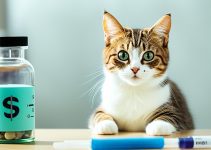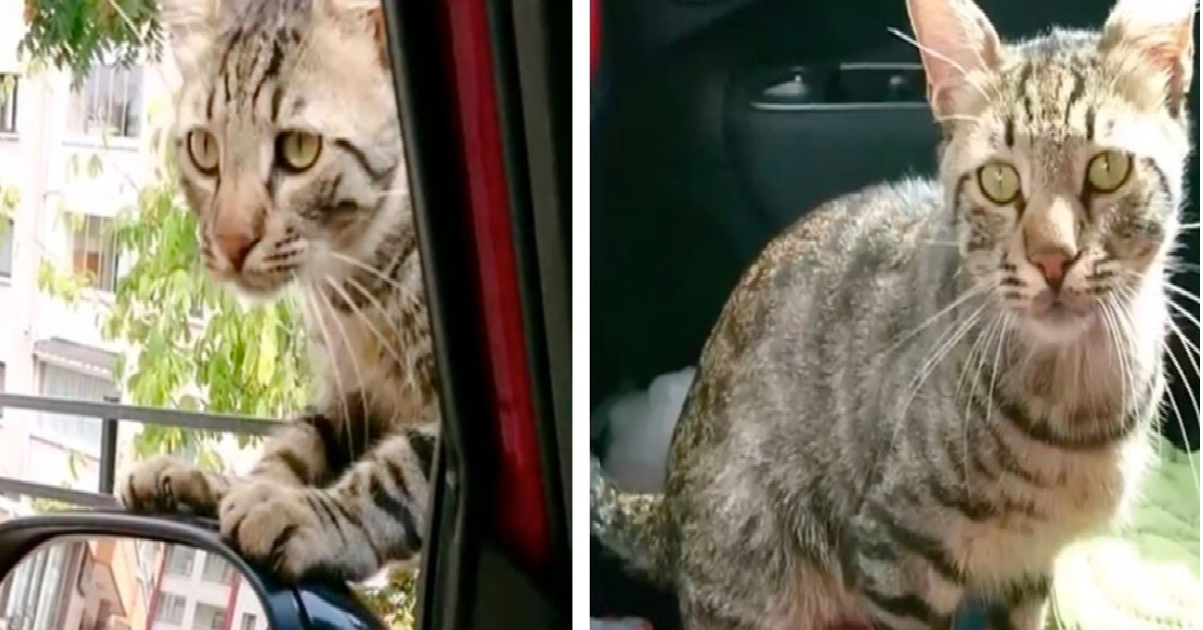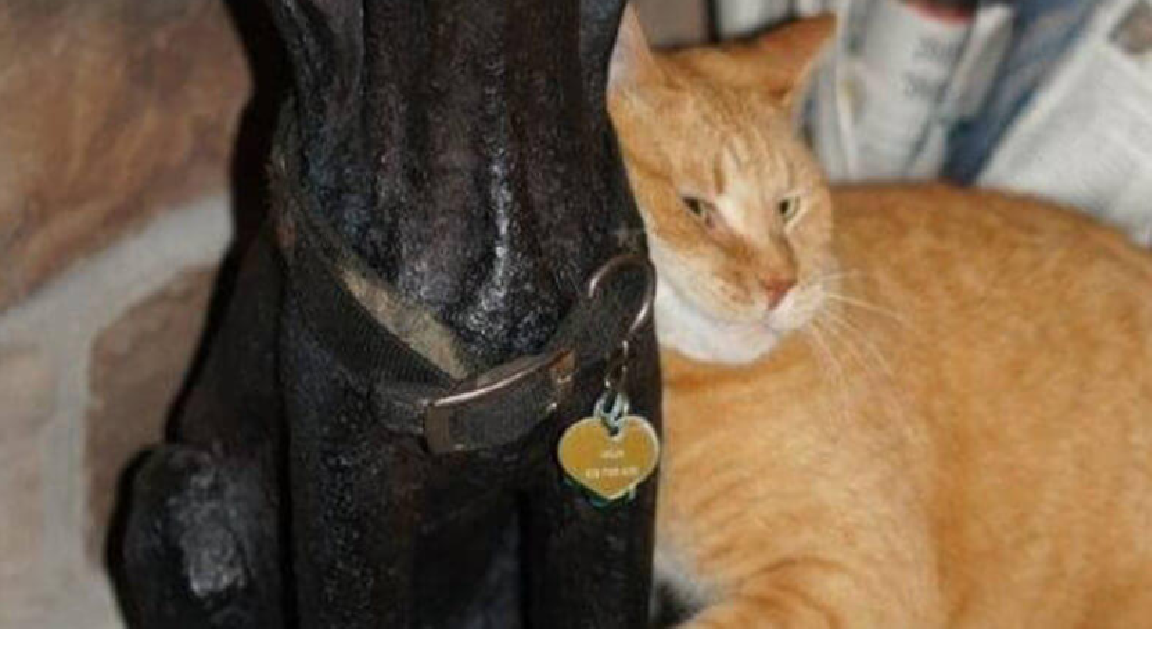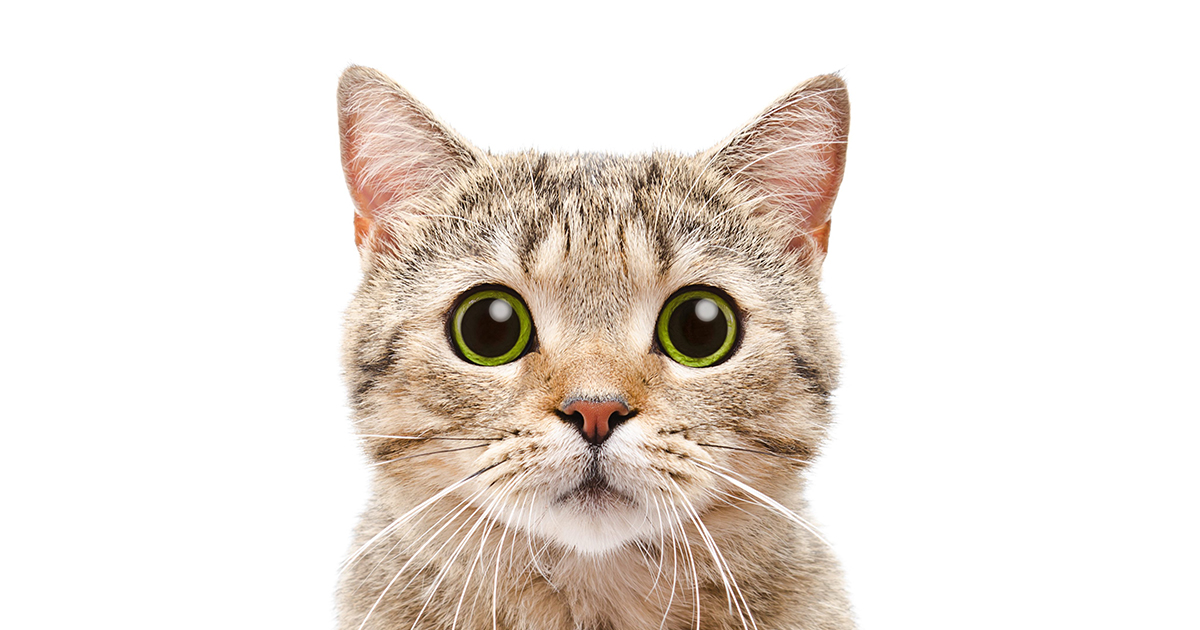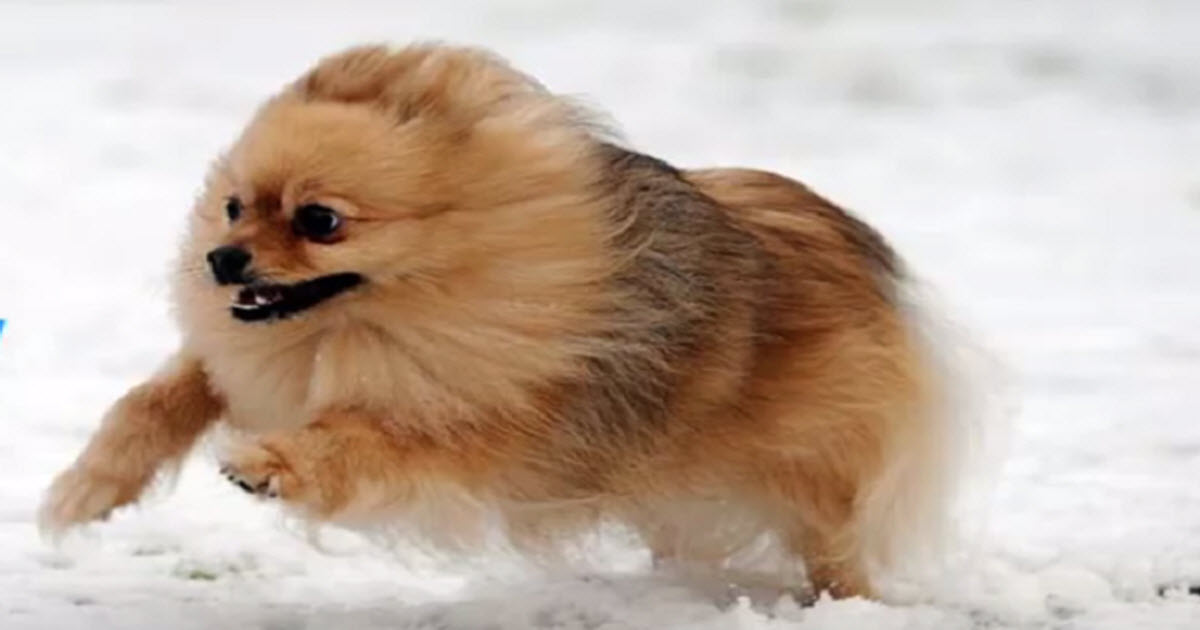As a pet owner, you may have wondered whether it’s safe to feed your cat bread. While cats are known for their curious nature and willingness to try different foods, their dietary needs are quite specific. In this article, I will dive into the topic of cats and bread, exploring whether it’s a suitable option for our feline friends.
It’s important to note that while cats can technically eat bread, it is not recommended as a regular part of their diet. Bread does not meet their nutritional needs as obligate carnivores and can potentially lead to health issues. Let’s take a closer look at the facts surrounding cats and bread, so you can make informed decisions about your pet’s diet.
Can Cats Eat Bread? Yes, but it is not recommended.
- Bread is not recommended for cats as it may cause allergies and make them sick.
- While bread may provide some nutritional benefits, it is not necessary or ideal for a cat’s diet.
- Feeding bread to cats can lead to constipation, bloating, weight gain, and a lack of appetite.
- Some specific types of bread, like Hawaiian bread, can be given to cats in moderation as a treat.
- Cats require a diet high in animal protein, making bread an unsuitable choice for meeting their dietary needs.
Is Bread Beneficial for Cats’ Nutrition?
When it comes to the nutritional benefits of bread for cats, it’s important to consider their unique dietary needs. While bread does provide some nutrients, such as carbohydrates and B vitamins, it is not an essential part of a cat’s diet. Cats are obligate carnivores, meaning their bodies are designed to thrive on a diet primarily composed of animal protein.
A cat’s digestive system is not well-equipped to process large amounts of carbohydrates found in bread. This can lead to weight gain, digestive issues, and potential imbalances in blood sugar levels. It’s important to prioritize nutritionally balanced cat food that is specially formulated to meet their dietary needs.
While bread may not be beneficial for a cat’s nutrition, it’s essential to provide a complete and balanced diet that includes high-quality animal protein. This will ensure that your cat obtains all the necessary nutrients for optimal health and well-being.
The Role of Fiber in a Cat’s Diet
Fiber is an important component of a cat’s diet, aiding in digestion and maintaining healthy bowel movements. While some types of bread may contain small amounts of fiber, it is more beneficial for cats to obtain fiber from sources such as commercially complete cat food formulated with natural fiber sources like beet pulp or cellulose. These sources are specifically designed to meet a cat’s dietary needs and provide the right balance of nutrients.
While bread may offer some nutritional benefits, it is not a necessary or ideal part of a cat’s diet. Cats require animal protein as the primary component of their nutrition, and excessive consumption of bread can lead to potential health issues. It’s best to stick to nutritionally complete cat food to ensure your feline friend receives all the necessary nutrients for a healthy life.
Potential Side Effects of Bread on Cats
Feeding bread to cats can have several potential side effects. One common side effect is constipation, which can occur when cats consume bread due to its lack of natural fiber. This can lead to discomfort and digestive issues. Additionally, bread can cause bloating in cats, making them feel gassy and uncomfortable. It is important to monitor your cat closely if they have eaten bread and look for signs of constipation or bloating.
Another potential side effect of feeding bread to cats is increased thirst. Bread is typically high in salt content, which can cause cats to become more thirsty than usual. This can lead to more frequent urination and may indicate a need for increased water intake. If you notice your cat drinking more water than usual after consuming bread, it is important to provide them with fresh water at all times to prevent dehydration.
Weight gain is another common side effect of feeding bread to cats. Bread is high in carbohydrates, which can contribute to weight gain in cats if consumed in large quantities. Cats that consume bread regularly may experience an increase in body weight over time. This can lead to obesity and associated health issues. It is important to monitor your cat’s weight and overall body condition and adjust their diet accordingly to maintain a healthy weight.
Bread and Lack of Appetite in Cats
Some cats may experience a lack of appetite after consuming bread. This could be due to the fact that bread is not a natural part of their diet and may not be as satisfying as their regular cat food. If your cat consistently shows a lack of interest in their regular meals after consuming bread, it is important to consult with a veterinarian to ensure that their nutritional needs are being met.
Bread and Pawing at the Mouth in Cats
Cats may also paw at their mouths after eating bread. This can be due to the dry texture of bread, which may cause some discomfort or irritation in their mouths. If you notice your cat pawing at their mouth or showing signs of discomfort after eating bread, it is best to avoid feeding it to them in the future.
Feeding bread to cats can have potential side effects such as constipation, bloating, increased thirst, weight gain, and a lack of appetite. It is important to prioritize a nutritionally balanced cat diet and avoid feeding bread as a regular part of their meals. If you choose to give your cat bread as an occasional treat, always do so in moderation and monitor their health closely. Remember, the best way to ensure your cat’s overall well-being is to provide them with high-quality, commercially complete cat food that meets their specific dietary needs.
Can Cats Eat Specific Types of Bread?
When it comes to cats and bread, it’s important to note that bread is generally not recommended for cats due to their allergies to starches and potential digestive issues caused by yeast. However, there are a few specific types of bread that may be safer for cats to consume in moderation.
Hawaiian bread can be given to cats as a treat due to its composition of whole grains and fruits. It provides a different texture and taste experience for cats without containing harmful ingredients such as chocolate, raisins, onions, garlic, or excessive salt. Hawaiian bread, when given in small amounts, can be a cat-safe bread option for an occasional treat.
On the other hand, it is important to avoid flavored bread that may contain toxic ingredients for cats. Flavored breads often have additives that are harmful to cats, such as chocolate, which is toxic to them. It is crucial to read the labels and ensure the bread does not contain any ingredients that can be harmful to your feline friend.
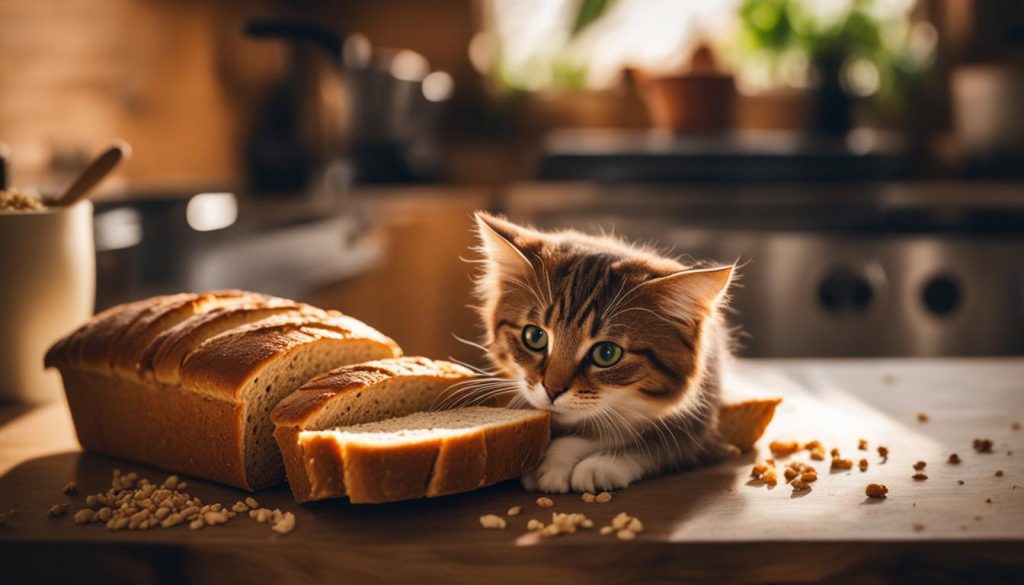
Furthermore, it is essential to never feed cats bread dough that contains yeast. Yeast can ferment in a cat’s digestive system, leading to gas buildup, discomfort, and potentially life-threatening conditions. It is always best to consult with a veterinarian before introducing any new types of bread or treats into your cat’s diet.
Bread and Cats’ Dietary Needs
When it comes to cats’ dietary needs, bread falls short of meeting their requirements. As obligate carnivores, cats need a diet high in animal protein to thrive. While bread contains carbohydrates, it lacks the essential nutrients that cats need for optimal health.
Animal protein is crucial for cats as it provides important amino acids that support their growth, muscle development, and overall well-being. Carbohydrates, on the other hand, can contribute to weight gain in cats, which can lead to various health issues such as obesity and diabetes.
Feeding bread to cats also poses risks due to its ingredients. Some types of bread may contain additives, such as onion or garlic, that are toxic to cats. Additionally, the dry texture of bread can cause discomfort and potentially lead to digestive problems in cats.
Bread and Cat Diet: The Importance of Animal Protein
Cats’ dietary needs are best met by feeding them a nutritionally balanced cat food that is specifically formulated to provide the right blend of protein, fats, and carbohydrates. This ensures that they receive all the essential nutrients they require for a healthy life.
While it may be tempting to share a piece of bread with your feline companion, it’s important to remember that their nutritional needs differ from ours. Instead, focus on providing high-quality cat food that prioritizes animal protein sources to support their overall health and well-being.
Bread and Cats vs. Dogs
When it comes to dogs, bread can be incorporated into their diet in moderation. Dogs have a higher tolerance for carbohydrates and can benefit from the energy and fiber provided by bread. However, it is important to be cautious and avoid excessive bread consumption in dogs as it can lead to weight gain and potential digestive issues.
Contrarily, bread is not recommended for cats. Cats are obligate carnivores and have specific dietary needs that bread cannot fulfill. It is best to prioritize high-quality, commercially complete cat food that is specially formulated to meet their nutritional requirements.
Risks of Bread for Dogs
While dogs can enjoy the occasional treat of bread, there are still risks to consider. Bread often contains additives, such as sugar, salt, and other ingredients that may be harmful to dogs in large quantities. Additionally, some types of bread, such as those containing raisins or chocolate, can be toxic to dogs and should be strictly avoided.
Health Benefits of Bread for Dogs
Despite the risks, there can be some health benefits to including bread in a dog’s diet. Bread can provide additional fiber, which can aid in digestion and promote regular bowel movements. It can also serve as a source of carbohydrates and energy, especially for active dogs. However, it is essential to consult with a veterinarian to determine the appropriate amount and type of bread to include in a dog’s diet.
Conclusion
While cats can technically eat bread, it is not recommended as a regular part of their diet. Bread does not meet their nutritional needs as obligate carnivores and can lead to potential health issues such as weight gain, digestive problems, and imbalances in blood sugar levels.
It is best to prioritize high-quality, commercially complete cat food that is specially formulated to meet cats’ specific dietary requirements. This ensures that they receive the right balance of animal protein, vitamins, and minerals to maintain optimal health.
If you choose to give your cat bread as an occasional treat, always do so in moderation and monitor their health and behavior closely. Remember that fresh water should always be available to them along with their regular cat food. By carefully managing their diet and providing appropriate nutrition, you can help ensure that your cat lives a long and healthy life.
FAQ
Can cats eat bread?
While cats can technically eat bread, it is not recommended as a regular part of their diet due to their allergies to starches and yeast, which can make them sick.
Is bread beneficial for cats’ nutrition?
Bread is not a necessary or ideal part of a cat’s diet. Cats require a diet primarily composed of animal protein, and bread can lead to weight gain, digestive issues, and potential imbalances in blood sugar levels.
What are the potential side effects of bread on cats?
Feeding bread to cats can cause constipation, bloating, increased thirst, weight gain, a lack of appetite, and pawing at the mouth due to the dry texture of bread.
Can cats eat specific types of bread?
Hawaiian bread, made from whole grains and fruits, can be given to cats in moderation as a treat. However, it is important to avoid flavored bread that contains potentially toxic ingredients and bread dough containing yeast.
How does bread fit into cats’ dietary needs?
Bread does not meet the dietary needs of cats as obligate carnivores. It can contribute to weight gain and other health issues. Cats should prioritize animal protein sources and nutritionally complete cat food.
Can dogs eat bread?
Dogs can tolerate carbohydrates in their diet better than cats, but excessive bread consumption can contribute to weight gain and potential digestive issues. It is best to consult with a veterinarian for specific dietary recommendations for dogs.

